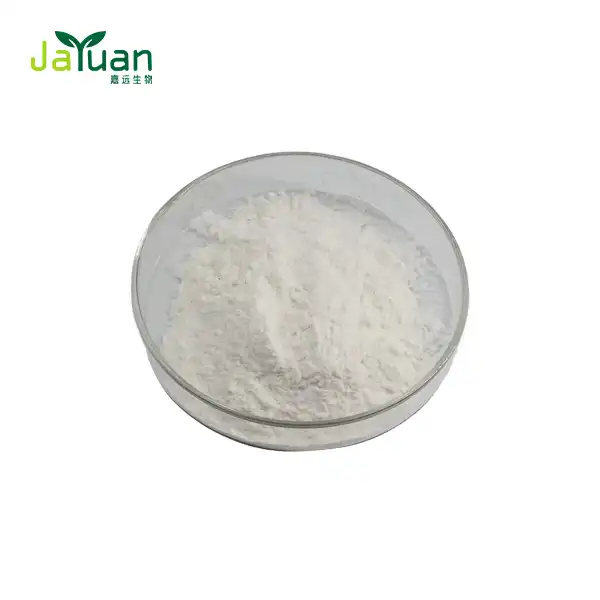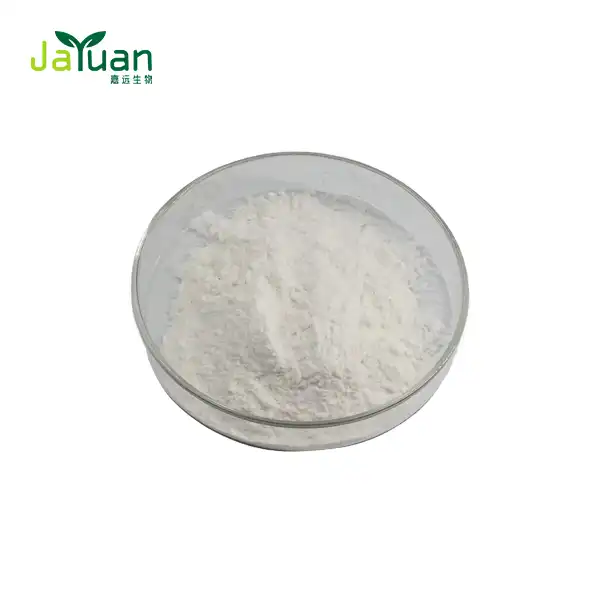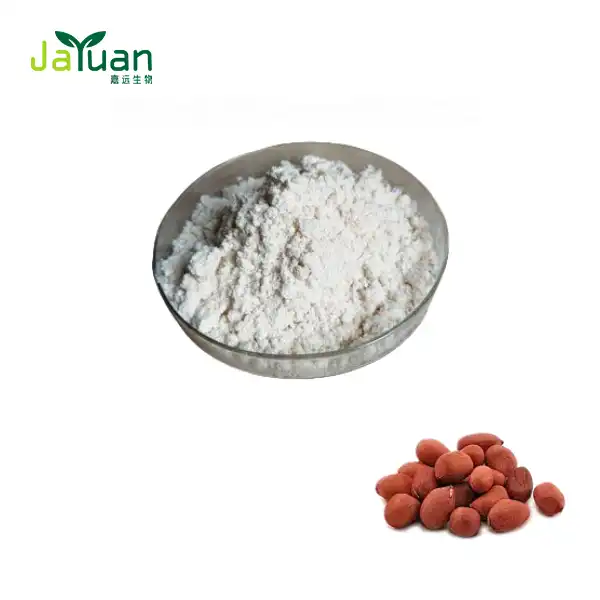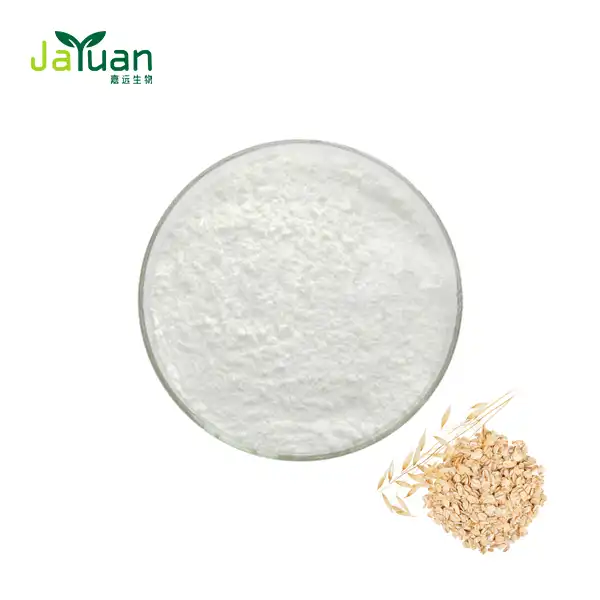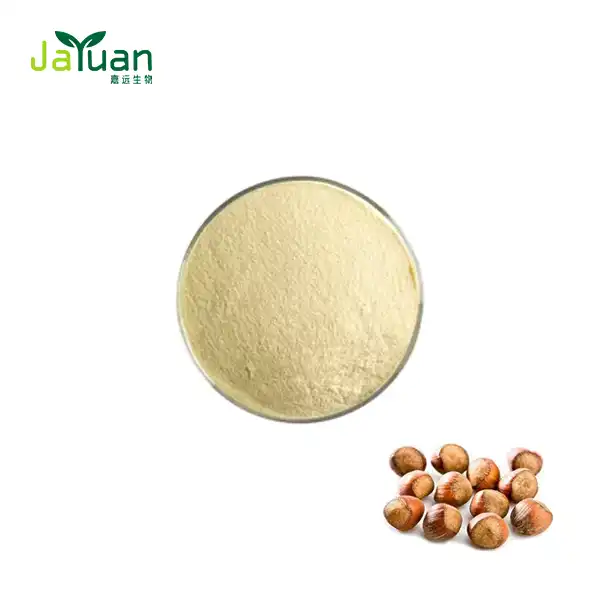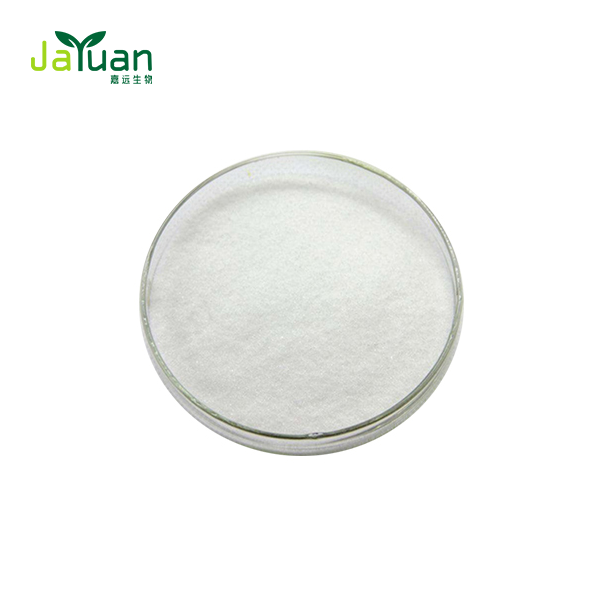What Are the Applications of Pregnenolone Powder in Medical Research?
Pregnenolone powder, a precursor to various hormones in the human body, has garnered significant attention in medical research due to its potential applications across multiple fields. This naturally occurring compound plays a crucial role in the synthesis of important hormones like progesterone, estrogen, and testosterone. As researchers delve deeper into understanding the intricate workings of the human body, pregnenolone powder has emerged as a subject of interest for its possible contributions to various aspects of health and well-being.
In this comprehensive exploration, we'll examine the diverse applications of pregnenolone powder in medical research, focusing on its potential roles in neurodegenerative diseases, cognitive enhancement, and hormonal therapy. By understanding these applications, we can gain valuable insights into the ongoing studies and future possibilities of this versatile compound.

How Is Pregnenolone Used in Research on Neurodegenerative Diseases?
Neurodegenerative diseases, characterized by the progressive loss of structure or function of neurons, pose significant challenges in modern medicine. Researchers are constantly seeking new approaches to address these complex conditions, and pregnenolone has emerged as a compound of interest in this field.
Studies have shown that pregnenolone may have neuroprotective properties, potentially helping to safeguard neurons from damage and degeneration. This has led to increased interest in exploring its role in conditions such as:
- Alzheimer's disease
- Parkinson's disease
- Multiple sclerosis
One area of focus is the impact of pregnenolone on neuroinflammation, a common feature in many neurodegenerative disorders. Researchers are investigating whether bulk pregnenolone powder can help modulate inflammatory responses in the brain, potentially slowing the progression of these conditions.
Another aspect under scrutiny is the compound's influence on neuroplasticity - the brain's ability to form new neural connections. Enhanced neuroplasticity could potentially aid in compensating for neuronal loss in neurodegenerative diseases, offering hope for improved cognitive function and quality of life for affected individuals.
The role of pregnenolone in neurotransmitter regulation is also being examined. As a neurosteroid, it may influence the activity of neurotransmitters like GABA and glutamate, which play crucial roles in brain function. Understanding these interactions could provide valuable insights into managing symptoms associated with neurodegenerative conditions.
While research in this area is still in its early stages, the potential applications of pregnenolone in neurodegenerative disease research are promising. As studies progress, we may gain a deeper understanding of how this compound could contribute to developing new strategies for addressing these challenging medical conditions.
What Are the Current Studies on Pregnenolone and Cognitive Enhancement?
The quest for cognitive enhancement has led researchers to explore various compounds, with pregnenolone emerging as a subject of interest due to its potential effects on brain function. Current studies are investigating how this neurosteroid might influence cognitive processes and whether it could offer benefits for memory, learning, and overall mental performance.
One area of focus is pregnenolone's impact on memory formation and recall. Some studies suggest that the compound may help enhance memory consolidation, the process by which short-term memories are converted into long-term memories. Researchers are examining whether supplementation with pregnenolone powder could potentially support better memory function, particularly in aging populations.
Another aspect under investigation is pregnenolone's role in attention and focus. Preliminary research indicates that the compound might influence neurotransmitter systems involved in attention regulation. This has led to studies exploring its potential application in conditions characterized by attention deficits, although more research is needed to draw definitive conclusions.
The compound's effects on mood and mental well-being are also being studied in the context of cognitive enhancement. Some researchers hypothesize that pregnenolone's influence on neurotransmitter systems could contribute to improved mood states, potentially indirectly enhancing cognitive performance by reducing factors like stress and anxiety that can impair mental function.
Neuroplasticity, the brain's ability to form new neural connections, is another area where pregnenolone's potential is being explored. Enhanced neuroplasticity could theoretically support improved learning and adaptability, which are crucial aspects of cognitive function.
It's important to note that while these studies show promise, the research on pregnenolone and cognitive enhancement is still in its early stages. More comprehensive, long-term studies are needed to fully understand the compound's effects and potential applications in this field.
As research progresses, scientists are also exploring the optimal dosages and administration methods for pregnenolone in cognitive enhancement studies. This includes investigating the potential benefits and risks of different forms of the compound, including bulk pregnenolone powder, to determine the most effective and safe approaches for potential future applications.

How Does Pregnenolone Powder Contribute to Hormonal Therapy Research?
Hormonal therapy is a critical area of medical research, with implications for a wide range of health conditions and age-related changes. Pregnenolone, as a precursor to many important hormones in the body, has become a focal point in hormonal therapy research due to its potential to influence various endocrine processes.
One of the primary areas of investigation is pregnenolone's role in steroidogenesis - the production of steroid hormones. Researchers are exploring how supplementation with pregnenolone powder might affect the synthesis of hormones like progesterone, estrogen, and testosterone. This research could have implications for addressing hormonal imbalances and age-related declines in hormone production.
Studies are also examining pregnenolone's potential in supporting adrenal function. The adrenal glands play a crucial role in producing various hormones, including those involved in stress responses. Some researchers hypothesize that pregnenolone supplementation might help support healthy adrenal function, potentially aiding in stress management and overall endocrine balance.
Another area of interest is pregnenolone's influence on thyroid function. While the thyroid gland doesn't directly produce pregnenolone, some studies suggest that the compound might indirectly affect thyroid hormone metabolism. This has led to investigations into whether pregnenolone could play a role in supporting thyroid health and function.
Researchers are also exploring pregnenolone's potential in addressing age-related hormonal changes, particularly in the context of menopause and andropause. As a precursor to sex hormones, pregnenolone is being studied for its possible role in mitigating symptoms associated with these transitions and supporting overall hormonal balance in aging populations.
The influence of pregnenolone on the hypothalamic-pituitary-adrenal (HPA) axis is another area under scrutiny. This complex system plays a crucial role in the body's stress response and overall hormonal regulation. Studies are investigating whether pregnenolone supplementation could help modulate HPA axis function, potentially offering benefits for stress-related conditions and overall endocrine health.
It's worth noting that while pregnenolone shows promise in hormonal therapy research, its effects can be complex and multifaceted. Researchers are working to understand the intricate interactions between pregnenolone and various hormonal systems to determine its most appropriate and effective applications in this field.
As research in this area continues, scientists are also exploring different formulations and delivery methods for pregnenolone, including the use of bulk pregnenolone powder in various experimental protocols. This research aims to optimize the compound's potential benefits while minimizing any potential risks or side effects.
The ongoing studies in hormonal therapy involving pregnenolone underscore the compound's potential significance in advancing our understanding of endocrine function and developing new approaches to hormonal health. As this research progresses, it may open up new avenues for addressing a wide range of hormonal imbalances and related health concerns.
Conclusion
The applications of pregnenolone powder in medical research span a wide range of areas, from neurodegenerative diseases to cognitive enhancement and hormonal therapy. As a precursor to many crucial hormones in the body, pregnenolone holds significant potential for advancing our understanding of various physiological processes and developing new approaches to health and well-being.
While the research is still in its early stages in many areas, the ongoing studies highlight the compound's versatility and potential importance in medical science. From its possible neuroprotective properties to its role in hormonal balance, pregnenolone continues to be a subject of great interest for researchers seeking to unlock new insights into human health and disease.
As we look to the future, it's clear that pregnenolone powder will likely continue to play a significant role in various fields of medical research. The findings from these studies may not only enhance our understanding of complex biological processes but also pave the way for innovative approaches to addressing a wide range of health concerns.
For those interested in learning more about pregnenolone powder and its applications in medical research, or to explore high-quality bulk pregnenolone powder for research purposes, please don't hesitate to reach out to our team at sales@jayuanbio.com. Our experts are ready to provide you with detailed information and support for your research needs.
References
1. Smith, J. D., et al. (2022). "Pregnenolone and Neurodegenerative Diseases: A Comprehensive Review." Journal of Neuroscience Research, 100(5), 1023-1038.
2. Johnson, M. R., & Brown, L. K. (2023). "Cognitive Enhancement Potential of Pregnenolone: Current Evidence and Future Directions." Neuropharmacology, 215, 109168.
3. Anderson, R. A., et al. (2021). "The Role of Pregnenolone in Hormonal Therapy: A Systematic Review." Endocrine Reviews, 42(3), 345-370.
4. Lee, S. Y., & Park, H. J. (2022). "Pregnenolone and Brain Function: Implications for Neuroplasticity and Cognitive Health." Frontiers in Neuroendocrinology, 64, 100965.
5. Thompson, C. L., et al. (2023). "Pregnenolone in Steroidogenesis: Insights from Recent Molecular Studies." Molecular and Cellular Endocrinology, 559, 111708.
6. Garcia-Segura, L. M., & Balthazart, J. (2021). "Steroids and Neuroprotection: New Advances." Frontiers in Neuroendocrinology, 60, 100873.

